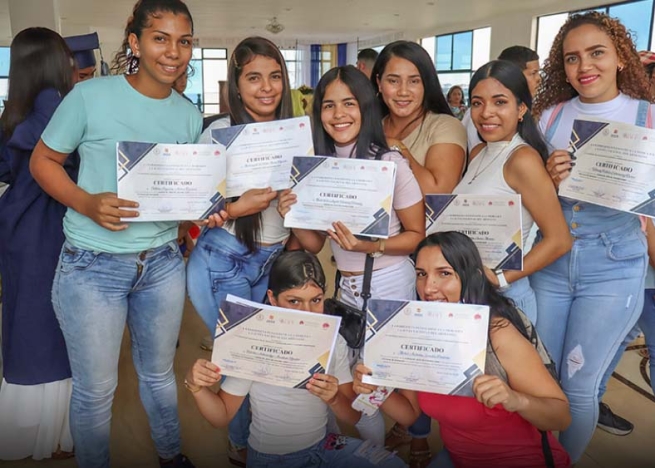The project aims to reduce poverty by strengthening technical skills and promoting family and associative entrepreneurship among young people in the city of Machala, Ecuador’s second poorest city, according to statistics. It targets young people between the ages of 18 and 35, migrants, mainly of Venezuelan origin, and Ecuadorian citizens experiencing social exclusion.
The target population of the learning workshops is mainly young women: migrants, mostly heads of households, single mothers, and economically dependent women. With lower levels of education, they have the greatest barriers to accessing training and decent work.
Through vocational training, promoting entrepreneurship, and working with the community on human rights and peace issues, there has been a positive impact on reducing inequality. It has also contributed to poverty reduction, and improved the quality of life and development opportunities for young people.
The implementation of the project over the past year has already yielded excellent results in terms of the level of education and employability of people with limited economic resources, and the second phase is already underway. Thanks to the support of the three institutions involved - Misiones Salesianas, the ADEY Foundation and the Salesians of Ecuador - part of the infrastructure, vocational courses and a revolving fund to support family entrepreneurship have been financed.
Courses in gastronomy, cosmetics, and the two cell phone repair courses were held at three different times. Each course lasted a total of 144 hours, divided as follows: 108 hours of face-to-face lectures on technical topics; 12 hours of lectures on peace culture, entrepreneurship and business models; and 24 hours of hands-on individual work to be done at home.
A total of 218 students participated in the formative courses, 68 percent women and 32 percent men, 56 percent Ecuadorians and 44 percent foreigners. Another objective of the courses was to promote group conviviality in order to integrate young Ecuadorian and immigrant students. And the environments and activities chosen were conducive to demonstrating the skills of the participants and promoting a culture of peace.
At the end of the courses, the recipients received recognition and a certificate attesting to their skills to work in the areas of gastronomy, cosmetics and cell phone repair. In addition, 70 percent of the participants’ families were able to diversify their sources of income, and 20 of them were able to access microcredit to support their dreams. At least 159 families reported that after the project they learned about respect, values, business plans, marketing, and other topics that promote women’s empowerment, have a positive impact, and foster attitudes and behaviors of tolerance and solidarity.


